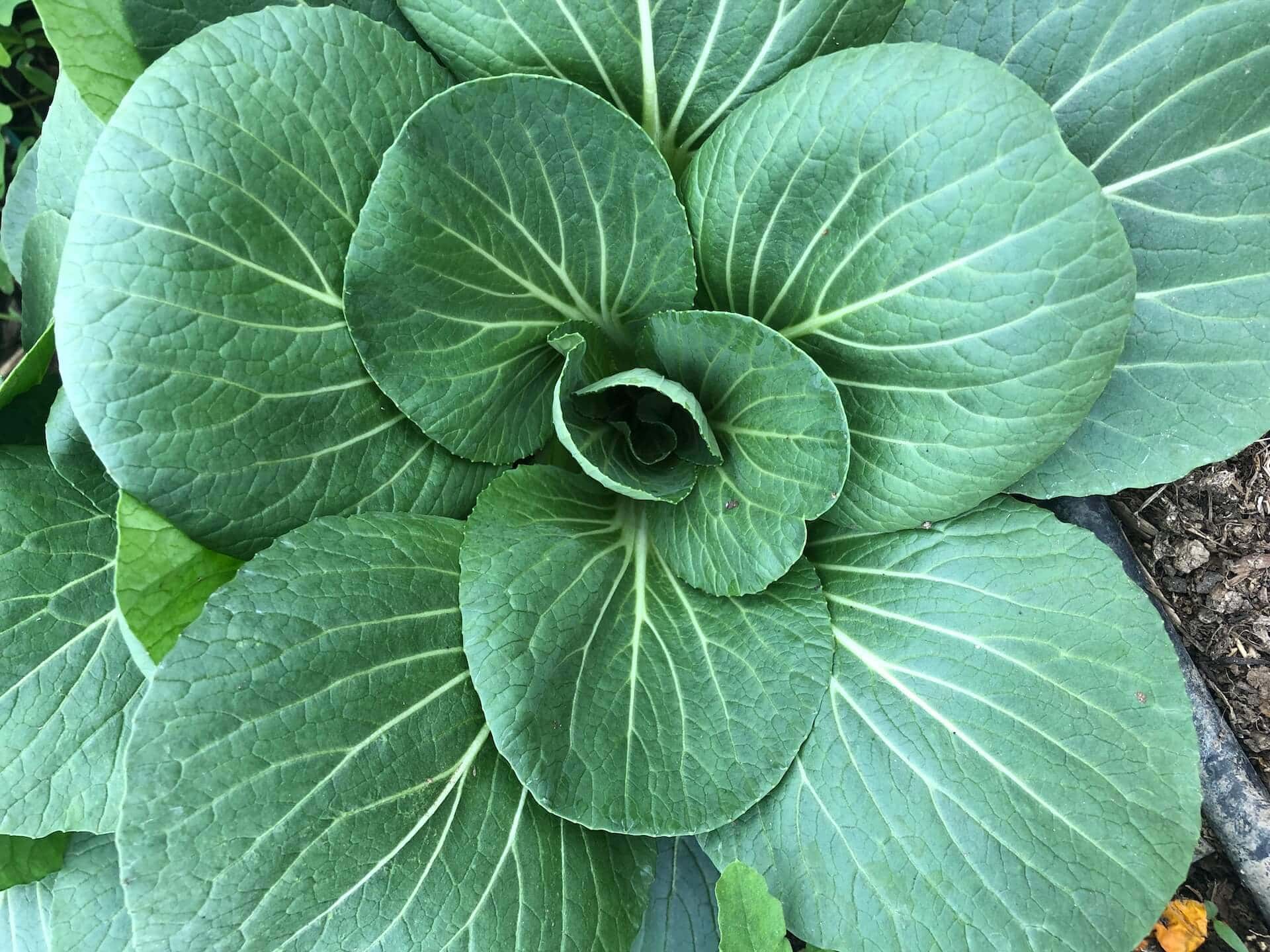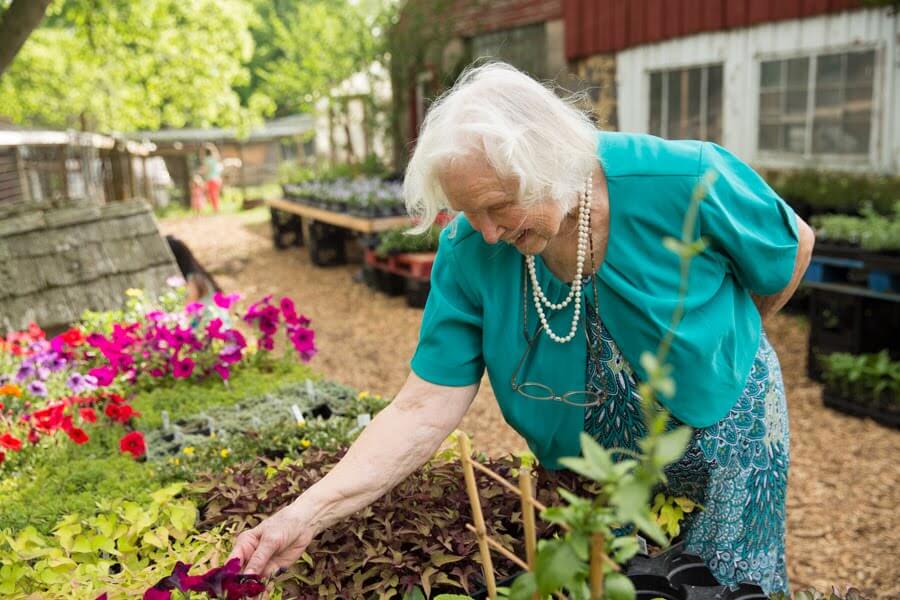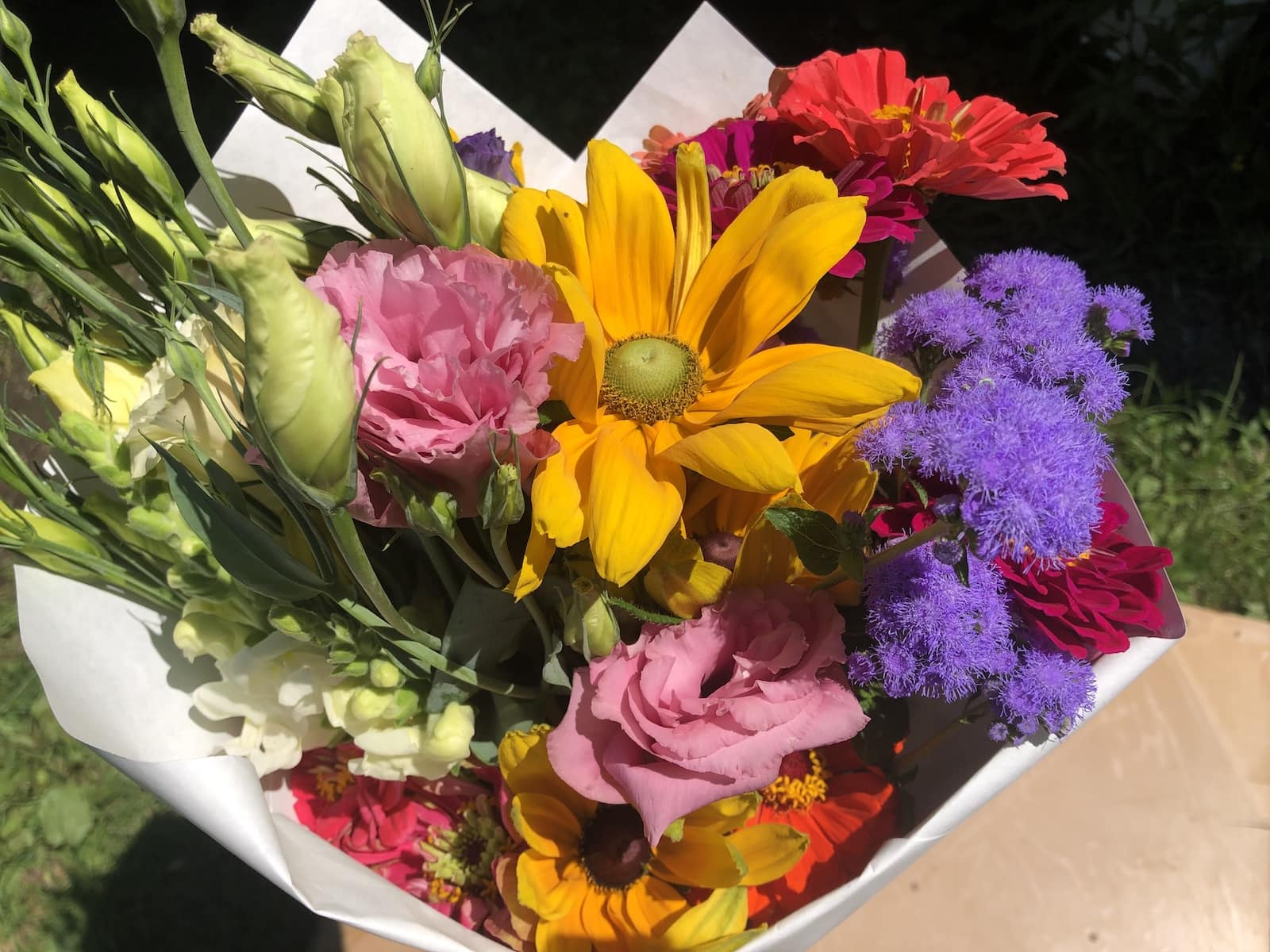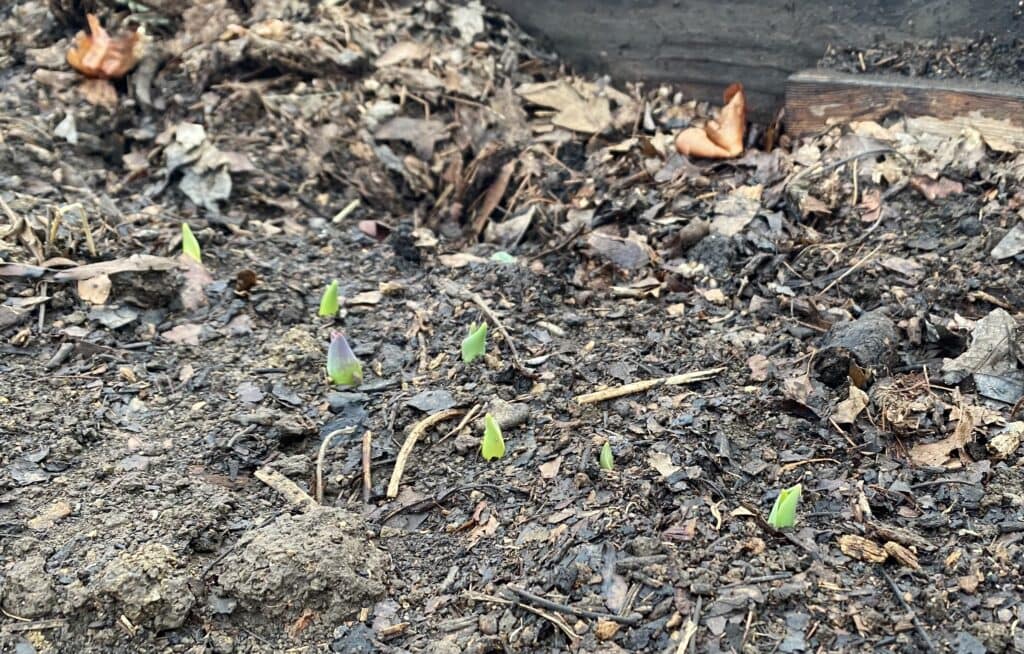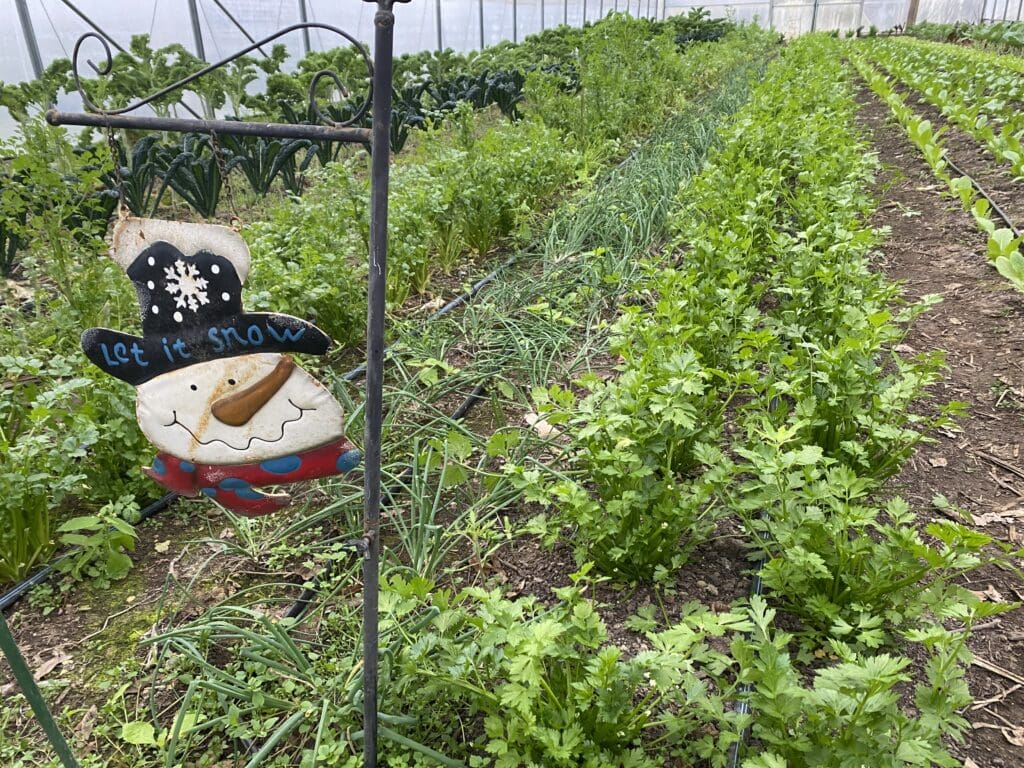This post may contain affiliate links. Probably doesn’t, but it might. It doesn’t cost you anything extra but if you use these links to buy something, we may earn a commission.
A spoonful of honey seems to help all kinds of things. From sore throats to upset digestion to wound care, honey is a powerhouse of antioxidants, with antibacterial, and antifungal properties. Plus, it tastes good! We have many customers who love our honey and the locally foraged pollen, for the honey’s great flavor and for its health benefits. Let’s explore some of the sweet qualities of honey.
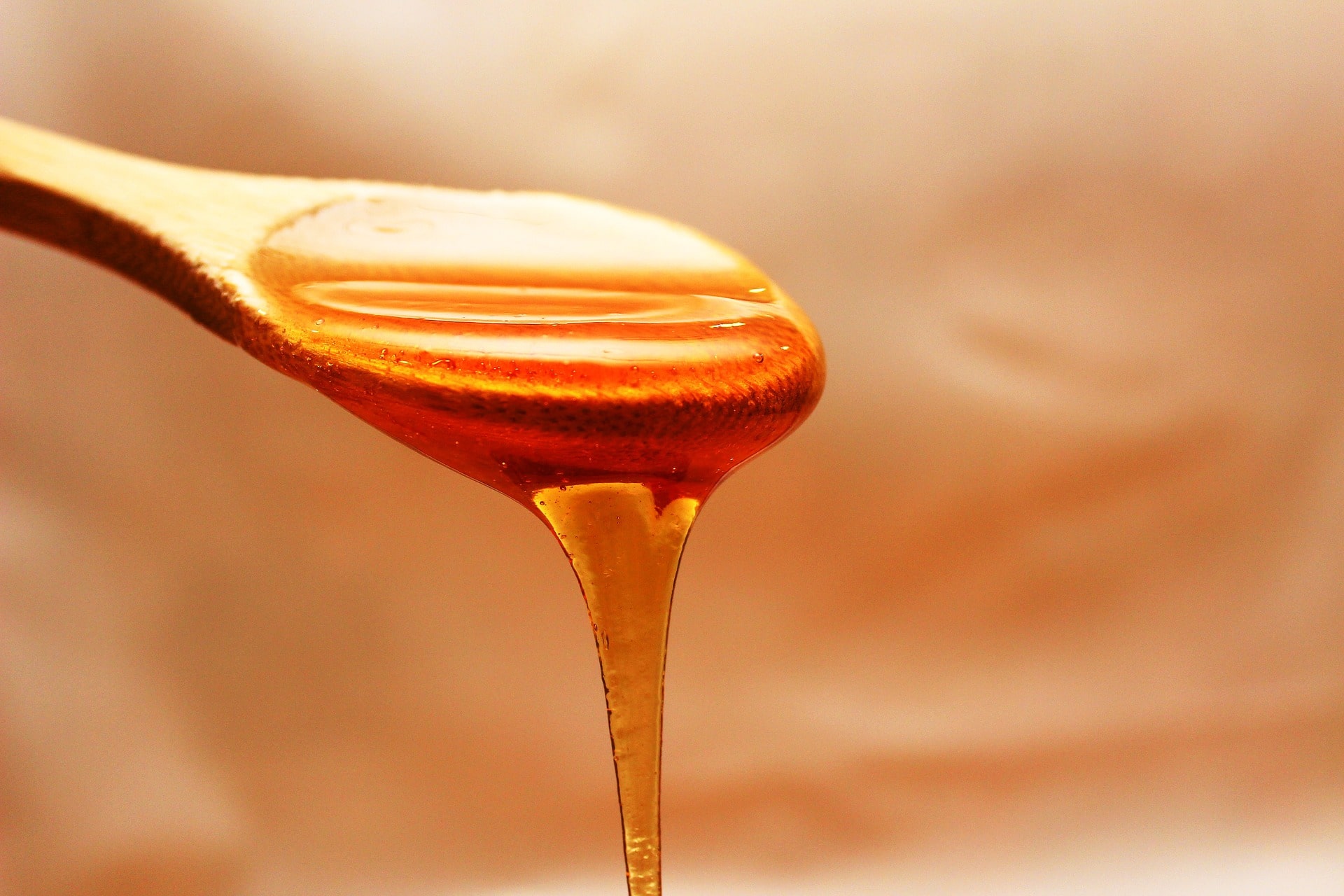
Table of Contents
Raw honey vs. pasteurized honey
What is raw honey? And what is pasteurized honey?
Raw honey is as it comes from the hives. It has not been heated. It usually is filtered, to remove any debris. Pasteurized honey has been heated to 145F to kill any bacteria which may be in the honey. Unfortunately, this also kills the beneficial enzymes which make honey such an effective healing aid.
This means that if you add raw honey to very hot water for your tea, then you are pasteurizing the honey. You will still get the soothing effects of the honey for helping with a sore throat, but you will lose the enzymes and antibacterial properties which help with reducing inflammation, calm digestive upsets or lessen infections. Wait about 2-3 minutes before adding your honey to the tea, then you have all the benefits.
The nutritional profile is about the same for pasteurized and raw honey. The sugars in honey take longer to digest than refined sugars. That means your pancreas does not have to secrete as much insulin to capture and store the extra sugar. Honey helps you avoid the sugar spike that tells your brain you are still hungry, whether taken alone or added to a beverage. This is true for raw honey and for pasteurized honey.
Does honey become toxic when heated?
No, pasteurized honey is not be toxic nor will it harm you. In the Ayurvedic sense, though, the honey has lost its potency to heal, and thus heated honey is not an agent for health in the same way that raw honey is.
How can honey help wounds?
Note: This is not medical advice. Always seek the advice of a medical professional when dealing with wounds, particularly any type of open sore. A small number of people are allergic to honey. Check to be sure that you or the person you are seeking to help is not one of them.
Honey is particularly beneficial for skin wounds, with its antibacterial and antifungal properties. Clean hands and a clean site are critical. To avoid being a sticky mess, mix the honey with aloe vera gel in equal parts, then apply to the skin. Cover with a gauze pad. Refrigerate any remaining paste in a covered jar. There are honey pads, such as Honey Wound Dressing, with the honey already imbedded in the gauze pad, and honey ointments, such as Medihoney Gel Wound & Burn Dressing, with the honey in a sterile tube, if you want the benefit of the honey without the mess.
The honey, either plain or in a mix, helps reduce pain and inflammation, and speeds up the growth of new tissue. Honey has an acidic pH between 3.2 and 4.5, which encourages the blood to release oxygen, which promotes healing, and reduces the presence of proteases, which slow down the process of healing.
Honey is naturally full of sugar, which has the effect of drawing water out of the damaged tissue, and that reduces swelling.
Honey can be helpful for boils, burns, or ulcers. Doctors may use a medical grade honey in combination with other remedies.
Again, if you have a severe wound or a wound that is not healing, please check with a medical professional for the best way to proceed. You can ask if honey is an appropriate additional tool for your case.
Disclaimer: I have put honey directly onto my own skin wounds, and then covered with a gauze pad. A bit sticky to work through, but I have found it highly effective in speeding up the healing. The sticky residue rinses off skin quite easily when the pad comes off.
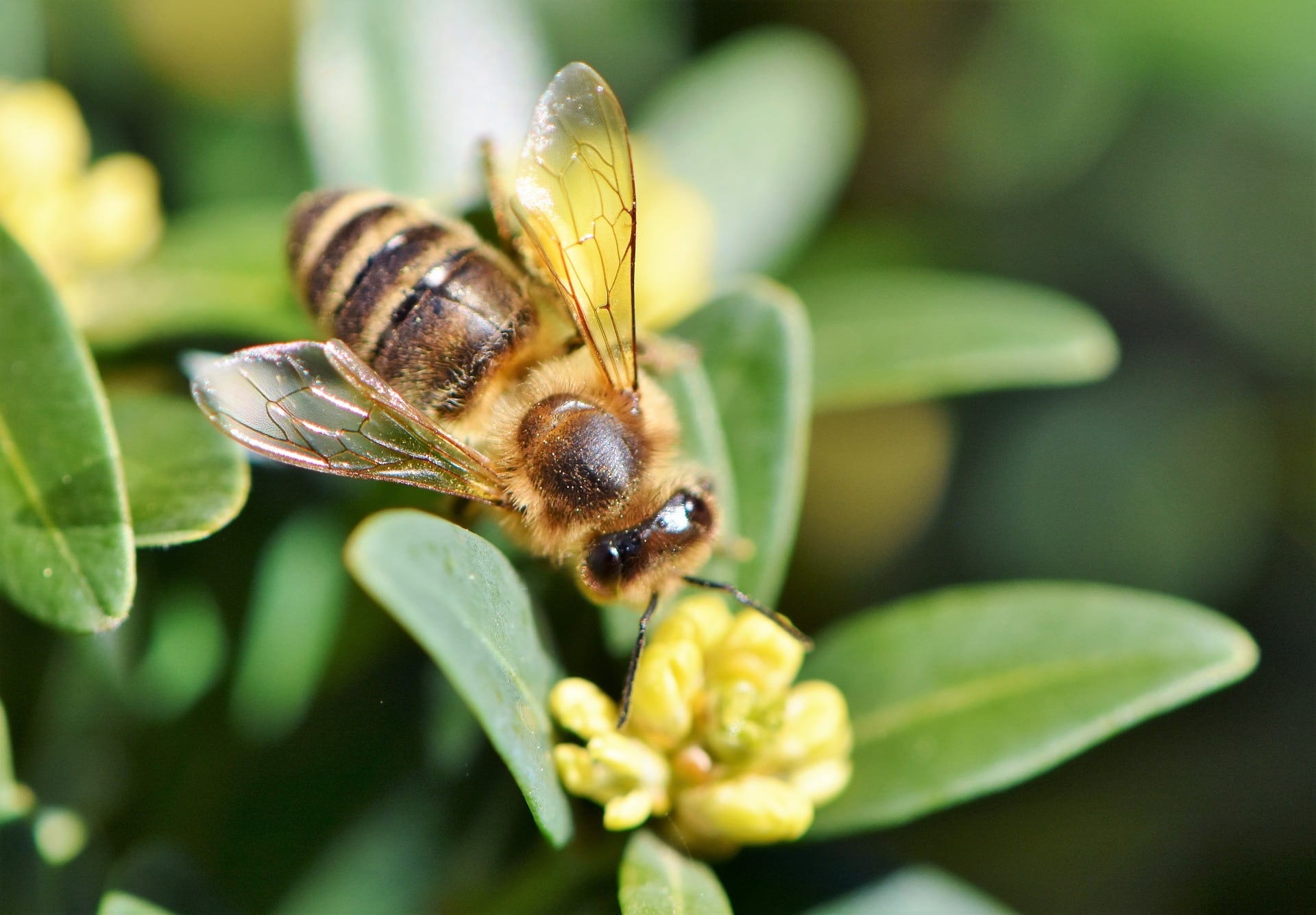
Can honey really help with seasonal allergy symptoms?
There is some research, but not a lot. One large scale study found that the people who took honey had relief from symptoms continuing for a month after they stopped taking the honey. You will primarily find lots of stories about how honey has helped individuals, rather than large studies. How much relief you get may depend on the type of allergic reaction you have to seasonal pollens.
To get the best use of honey for allergies, look for honey that is produced in hives within 30 miles of where you are. You want the bees foraging on the local flowers and producing honey from that local nectar. This makes the honey more effective for the reactions to those pollens and flowers. Since we have hives on our farm, our customers get local, raw honey, which gives them the maximum benefit.
Since honey helps with reducing inflammation, it makes sense that honey can reduce the swelling of the sinuses. Of the many customers who have found relief with honey for their seasonal allergy symptoms, they all emphasized consistency—take a teaspoon of honey every day. Most take honey during the spring and fall seasons when their symptoms act up. Some people continue to take the honey all year, and then report that they have no symptoms the following spring.
Since honey is a type of sugar, always consult with a doctor if you have diabetes or pre-diabetes. If you are allergic to bees, then you probably already avoid honey and any other bee-related products.
Can honey help soothe a sore throat?
Yes, indeed! The propolis in honey (the sticky part) helps reduce airway inflammation, soothe the swallowing area of the throat, and calm inflamed cells. The protective layer of honey along the throat helps reduce the irritation. Honey combined with the astringency of lemon juice has been a favorite remedy for centuries.
Can honey be Certified Organic?
Good question! Unless the honeybees are kept in a confined area so that you know the source of the flowers, the answer is no. Honey bees can travel great distances, anywhere from 3-6 miles depending on abundance or scarcity of resources. That means you really can’t tell what they are foraging on. We try to make sure that there is an abundance of flowers and plants on our farm which are close to the hives, so that the bees do not have to travel far to get enough nectar. This helps build a healthier hive, since we know there are no chemicals or pesticides on our plants which can harm the honeybees.
Honeybees are great pollinators
Our honey bees are great pollinators and improve the productivity of our crops on the farm. Honey bees are active when it is sunny and warm, and go into a semi-hibernation state during the winter. We make sure to have plenty of flowers starting early in the season when they venture forth on a sunny late winter day.
When harvesting honey from the bee hives, the experienced beekeeper knows it is essential to leave honey for the colony to eat all winter long. Even in the semi-hibernation state, bees move around and need nourishment inside the colony. Leaving sufficient food is critical for the hive’s survival.
Remember to check for honey at your local farm. In addition to supporting the farm in your community, you get the best possible honey for yourself. Whether for pure pleasure for its delicious flavor, or for the health benefits, local honey is the best.
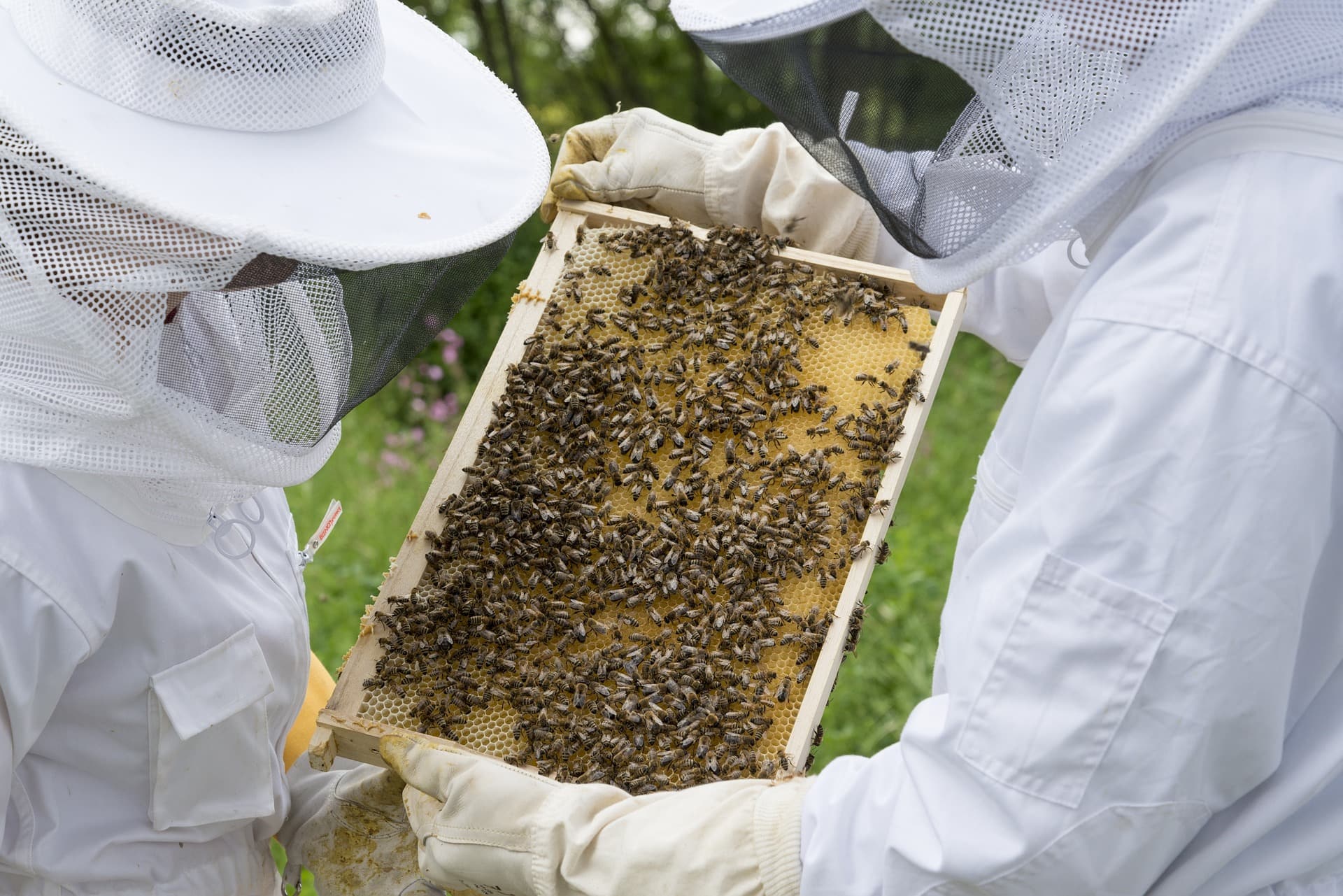
Are there health risks to eating honey?
Honey is not for people with certain medical conditions. Raw honey is not recommended for children under two years of age, as their digestive systems are not fully developed. If you are diabetic or pre-diabetic, honey is not recommended as it is 100% sugar. If you are allergic to bees, you should check with your doctor before proceeding. Even applying topically may cause a reaction.
For most people, honey is very beneficial. If you have serious health issues, check with a medical professional before using.
Conclusion
Where should you get your honey? Your best honey is from a local beekeeper so that you get all the enzymatic and allergy-reducing benefits of the honey.
The hives should be located in an area where the bees have access to a diversity of untreated flowers throughout the active season. You do not want the bees visiting flowers that have been sprayed with chemicals, as this affects the honey.
Your most beneficial honey is the honey which has not been pasteurized. Generally, locally produced honey will be unprocessed and provide you with the best flavor and benefits.
Additional resources:
Healthline: 8 Raw Honey Benefits for Health and Honey for Allergies and Asthma
Livestrong: Does Honey Lose Nutrients When Added to Tea & Coffee?
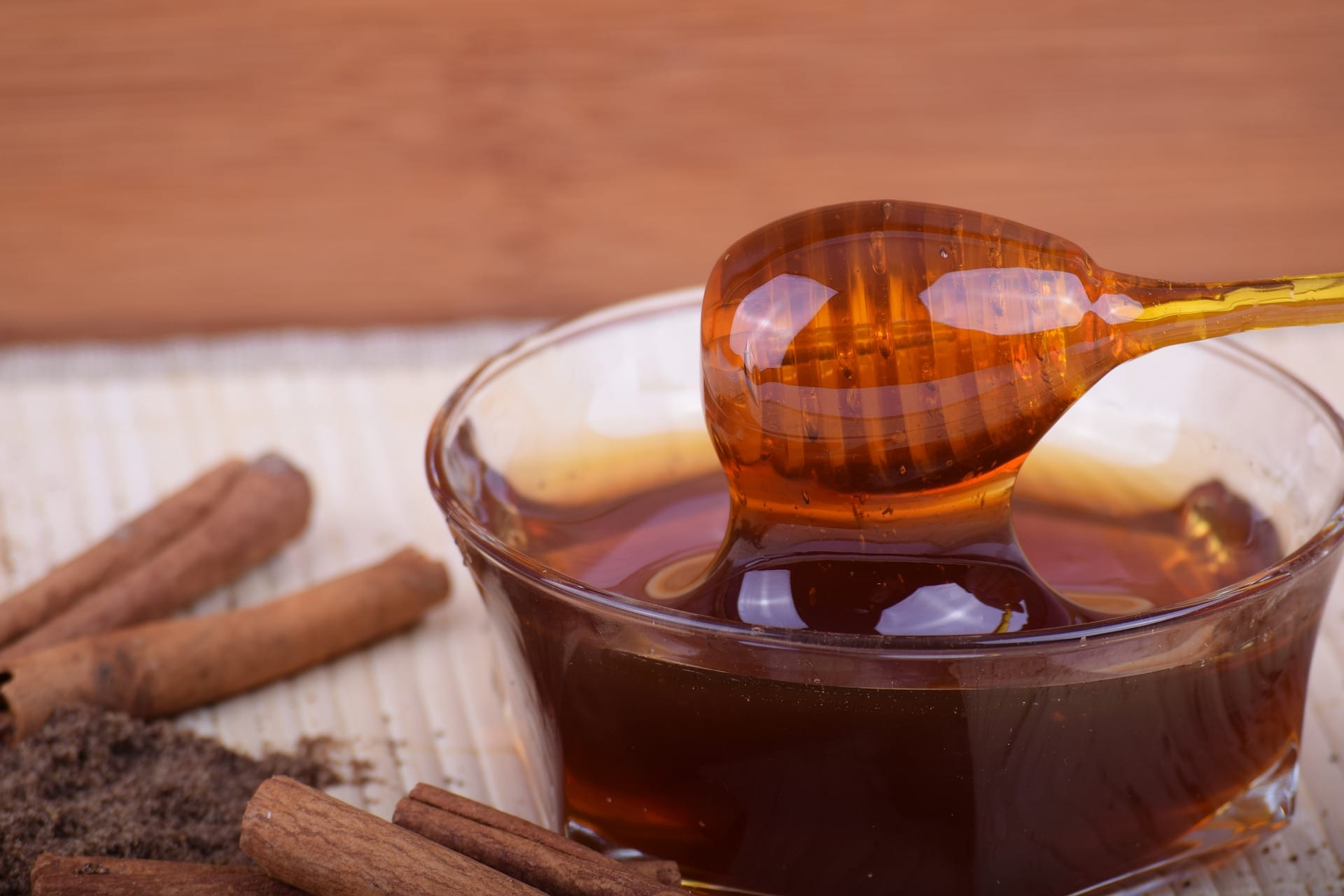
About Highland Orchards: Completely surrounded by suburbia, our small farm has been growing beyond expectations since 1832, just north of Wilmington, Delaware.
Growing a wide variety of fruits, vegetables, herbs, and flowers, Highland Orchards provides true “farm fresh” for the community all year. If you want to shake the hand of the farmer who grows for you, here is the farm! With plants in the ground or under cover in tunnels, we grow for every season. A family farm, we have three different generations involved in running the farm right now.
Come see us to eat fresh, eat local, and eat well at Highland Orchards Farm Market, 1431 Foulk Road, Wilmington, DE 19803
Happy growing and happy eating!
~Ruth
